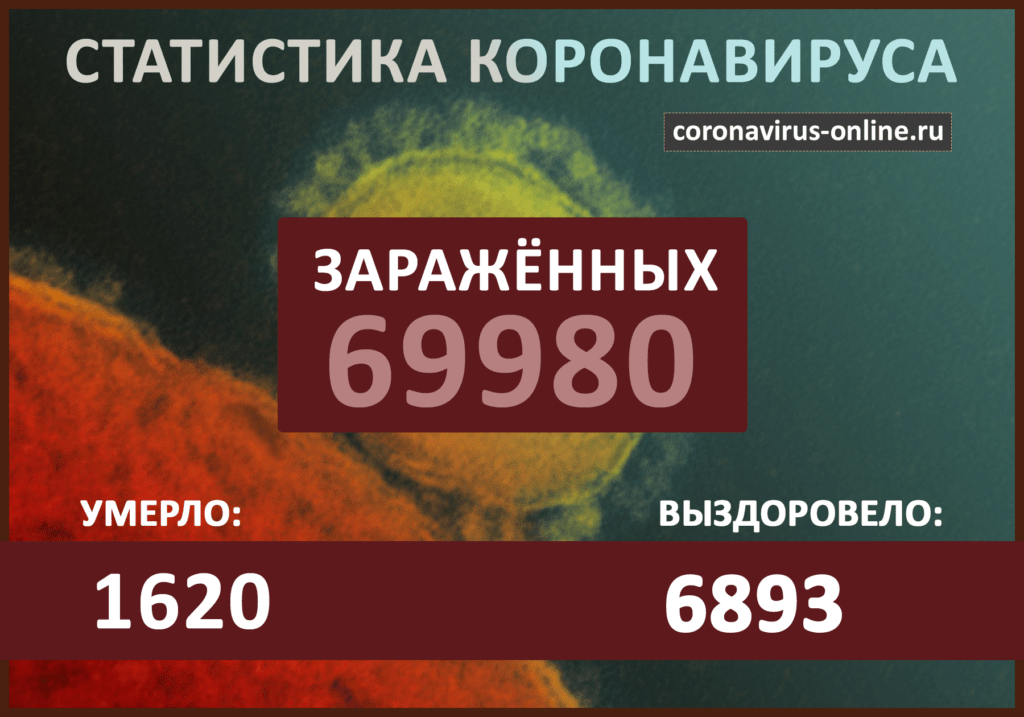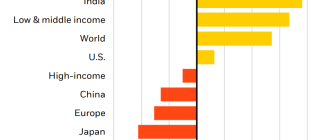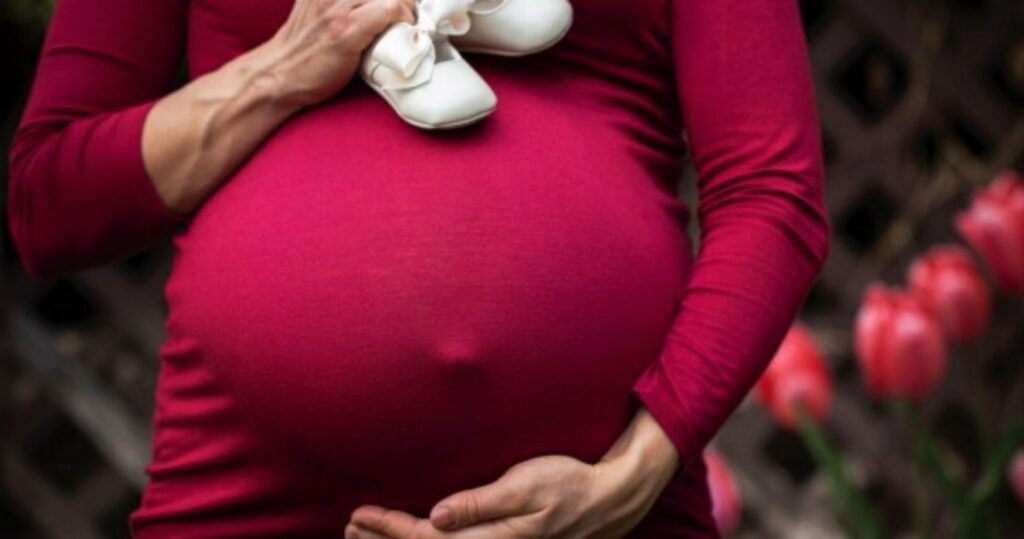Coronavirus COVID-19 actual info
The first symptoms of the coronavirus in humans (adults and children)
The material is prepared for everyone who is interested in what coronavirus symptoms can be seen first in a person, both an adult and a child. In the features of modern realities, the first symptoms of coronavirus in humans can only appear for 14 days after infection. Read the article carefully and leave a comment.
Chinese coronavirus symptoms and signs in 2020
The 2019-nCoV coronavirus epidemic is spreading rapidly, covering new territories. The number of infected people is increasing every day , which is causing alarm to doctors around the world. There is no vaccine for this type of pathogen yet, so it is especially important to know the characteristic symptoms of the disease and recognize them in time in case of infection.
The first symptoms of the coronavirus in humans
The danger of the 2019-nCoV epidemic that broke out in China is the “blurring” of symptoms and insufficient knowledge of the pathogen. In total, the coronavirus family consists of 39 different viral pathogens that affect humans and animals. Below we will analyze the main first symptoms of coronavirus in humans, as well as prevention measures. Doctors believe that the first human infection occurred in contact with a sick mammal, presumably a bat. A few days ago, the Chinese authorities confirmed that it is possible to get infected from a sick person by airborne droplets.
The peculiarity of the coronavirus is that it can quickly affect the respiratory system (lungs), nerve fibers, and the digestive tract. This aggressiveness of the 2019-nCoV virus leads to a fatal outcome in some patients.
Common symptoms of coronavirus in humans are easily confused with the common flu or cold:
Fever. The temperature usually rises to 37-38°C, but some patients were recorded and higher readings of the thermometer. It is important to know that in the absence of treatment, the temperature can both stay and independently return to normal values. This depends on the nature of the disease, the work of the immune system, and individual characteristics of the body.
Dry cough. At first, the cough does not cause a person much discomfort. Gradually it progresses, becoming stronger and taking the form of attacks. A debilitating dry cough makes it difficult to breathe, accompanied by increasing pain in the throat and chest.
General malaise. The patient feels weak, completely lacking strength and energy. Common symptoms include severe headaches and dizziness. This often leads to loss of consciousness. If the coronavirus affects the muscles, myalgia occurs – intense muscle pain.
Difficulty breathing. The majority of patients affected by the 2019-nCoV virus were found to have severe lung tissue lesions. At the same time, the lungs are not able to fully perform their main function. The patient has attacks of suffocation, it is difficult for him to take a breath, which is aggravated by a paroxysmal dry cough.
Digestive disorder. Penetrating into the tissues of the gastrointestinal tract, the virus can cause severe inflammation and disrupt the normal process of digestion. In humans, this is manifested by diarrhea, nausea, vomiting, and abdominal pain.
The intensity of these symptoms differs for each person. Adults who have a strong immune system carry the disease more easily. If the disease affects an elderly person or a child, there is a high risk of death due to systemic damage to internal organs.
First signs of human coronavirus (in children and adults)
Let’s look at what the first signs of human coronavirus may appear after the incubation period. After the coronavirus enters the body, the incubation period begins. At this time, the pathogen is carried with the blood flow to organs and tissues, without showing itself in any way. The duration of the incubation period is from 7 to 14 days. After analyzing all the recorded and studied cases of the disease, the doctors concluded that most patients had an incubation period of about 10 days. According to other information, if the infection occurs from person to person, this time is reduced to 5 days.
Only at the end of the incubation period, the infected person has the first symptoms of the disease. Until this moment, the patient does not notice malaise, weakness and fever. This is why the outbreak could not be contained in the city of Wuhan, where the first infection occurred. When they left China, the patients did not even know that they were taking a dangerous pathogen with them.
The first signs of human coronavirus are poorly expressed:
- slight hyperthermia (subfebrile temperature in the range of 37,1—38,0°C);
- weakness, fatigue;
- absence of appetite;
- dry cough;
- runny nose;
- diarrhea, nausea.
If a patient goes to the hospital with these symptoms, doctors should perform laboratory tests for infections and do a chest x-ray. In the early stages of the disease, there may be no structural changes in the lungs. The final diagnosis is based on the results of tests for viruses and infections.
Further development of coronavirus disease
Progressing, coronavirus 2019-nCoV affects the patient’s lungs. Within 7 days after the first symptoms appear, the patient develops a severe form of pneumonia. In this case, inflamed alveoli of the lungs are filled with fluid, which prevents normal gas exchange. This disrupts the breathing process and causes acute oxygen deficiency in the tissues. The further development of the disease depends on the state of the human body and the quality of medical care provided to it:
Poor prognosis
If the infected person’s immune system is weakened or they have severe concomitant diseases, there is a high probability of death. The risk group includes the elderly, children, people suffering from severe pathologies of the cardiovascular and respiratory systems, and diabetes mellitus. It is pneumonia, which developed against the background of infection with the coronavirus 2019-nCoV, that causes people to die.
Favorable forecast
If a person notices the symptoms and quickly goes to the hospital, the chances of a cure increase. After testing for viruses and infections, doctors can make the correct diagnosis and begin treatment.
A specific drug for the Chinese coronavirus 2019-nCoV has not yet been developed. However, the holding of symptomatic therapy in conjunction with taking antivirals with broad spectrum of action leads to recovery. Treatment is aimed at maintaining lung function.
Cases of complete recovery have already been officially recorded in China. Doctors say that it is possible to completely cope with fever and pain on the 10-12 day of the disease. At the same time, a person may still have a cough, which, according to experts, is no longer dangerous for others.
How do I find out and check the symptoms of coronavirus in a person?
It is not possible to diagnose infection 2019-nCoV independently. The only way to detect the disease at an early stage is to consult a doctor if any malaise appears. Even a slight increase in temperature and a slight cough are alarming symptoms. The doctor will prescribe a blood or urine test for infections, which will determine the exact cause of pathological manifestations.
It is especially important to observe this rule for the following categories of people:
- travelers who have recently visited China for tourism or work purposes;
- employees of international companies who often have contact with foreigners;
- people who have friends, relatives, acquaintances who have recently returned from Asian countries;
- employees of airports, railway stations, seaports;
- people who regularly come into contact with a large number of strangers.
In the context of the epidemic, no one can feel completely safe. To avoid confusing a common cold with a life-threatening illness, consult your doctor at the first sign of weakness and malaise. Now you know which symptoms of the coronavirus in a person, adult or child appear first.
Prevention of human coronavirus in 2020
Prevention of human coronavirus in 2020 is a set of measures aimed at strengthening the body’s protective functions in the fight against infection. The large-scale coronavirus epidemic, which began in China at the end of 2019, worries everyone who cares about their health and the lives of their loved ones. Infection with a new Chinese virus leads to the development of dangerous pneumonia, which can be fatal. A specific vaccine and cure for the disease has not yet been developed. To avoid infection, it is important to follow the simple rules of prevention of coronavirus.
To properly organize preventive measures, it is important to know how the pathogen spreads and what is a threat. The original source of the Chinese virus 2019-nCoV (COVID-2019 — official name) is presumably wild or domestic animals. Scientists are inclined to believe that the first infection occurred when a person came into contact with a bat. Therefore, prevention of coronavirus includes limiting interactions with other animals and eating meat from wild animals.
From person to person, the infection is transmitted by airborne droplets and fecal-oral route. In large quantities, the pathogen is contained in the natural secretions of the nasopharynx, vomit, feces of a sick animal or person. The development of the infectious process depends on how the 2019-nCoV virus enters the body. In case of airborne infection, respiratory symptoms are more pronounced, and in case of fecal-oral transmission, gastrointestinal lesions are more pronounced.
Prevention of coronavirus is necessary even for those who have already had this disease. The fact is that during the disease, antibodies are synthesized, but they do not guarantee protection from re-infection.
Measures to prevent coronavirus in adults
Preventive measures in adults include the following recommendations:
- Keep all surfaces clean in your home and office, and regularly perform wet cleaning and airing;
- Make sure that your hands are clean and use disinfectants to perform hygiene procedures;
- Try not to touch the lips, eyes, or nasal mucosa with your hands. You can only do this after washing your hands. Scientists say that people unknowingly make such touches at least 15 times an hour;
- Buy a spray sanitizer from a pharmacy and always carry it with you. This will help you prevent coronavirus wherever you are.
- Try to cook your own food or eat at trusted food service establishments.
- Do not buy questionable fast food, especially dishes containing meat;
- Do not eat food from the same package with other people (nuts, chips, candy cookies). Give preference to snacks and products in sealed individual packaging. You can also not drink drinks from the same bottle with other people;
It is very important to follow the rules of prevention of coronavirus when visiting public places. This is especially true in places where a large number of foreigners congregate. These places include airports, train stations, public transport, and sports arenas. In such places it is better to wear a medical mask or cover your mouth and nose with a clean napkin;
While the epidemic is not suppressed, try not to shake hands or kiss when meeting unfamiliar people. These normal measures of prevention of coronavirus should not be perceived by others as a sign of neglect;
Pay attention to the cleanliness of the surfaces of gadgets and electronics — smartphone screen, remote controls, computer keyboard and mouse, etc.;
Make sure that each family member uses their own personal hygiene kit – toothbrush, towel, comb, underwear, etc.
Among the measures of mandatory prevention, doctors indicate the wearing of medical masks. However, the effectiveness of mask protection depends on compliance with the rules of its use. To limit the contact of the viral pathogen with the mucous membranes of the mouth and nose, the gap between the face and the mask should be minimal. Do not touch the mask with your hands during use. After each use, it is important to change the medical masks. The repeated use of such prevention tools and their transfer to other people is strictly prohibited.
Useful information: see the material about the first symptoms of human coronavirus.
Measures to prevent coronavirus in children
The main thing that parents need to do is to have a conversation with their children about the dangers of infection and the importance of preventing coronavirus. School-age children should understand how serious the threat is if they do not follow the rules of hand and surface hygiene.
Other measures to prevent coronavirus in children include:
- complex strengthening of the child’s immune system – full nutrition, vitamins, physical activity, hardening;
- limiting contact with sick people;
- refusal to visit medical institutions without necessity;
- temporary restriction on visiting places where people gather.
If you see the first signs of respiratory diseases in your child, contact your doctor immediately. Cases of infection of children and adolescents have already been officially recorded. However, doctors note that there were no fatalities among children. This means that the key role in the treatment and prevention of coronavirus should be assigned to the child’s own immunity.
Drugs for the prevention of coronavirus
The Ministry of health recommends three medications that are effective in the treatment and prevention of coronavirus. This list includes:
- Ribavirin is an effective antiviral drug used to treat severe infections of the respiratory spectrum. The drug is available in capsules.
- Lopinavir+Ritonavir is a combined antiviral agent developed to combat severe immunodeficiency.
- Recombinant interferon beta-1b is a drug of antiproliferative, antiviral and immunomodulatory action.
It is important to remember that it is absolutely impossible to start taking medications for the prevention of coronavirus without consulting a doctor. The specialist will conduct a professional assessment of the state of the immune system and, if necessary, prescribe medication for prevention.
General measures of prevention of coronavirus – recommendations and memo of the Ministry of health
The Ministry of health has developed temporary guidelines for the prevention of coronavirus infection. Experts recommend that Russians temporarily refuse to visit China without urgent need. Also, since February 14, Russia has banned Charter flights to China. Even before that, the number of airlines allowed to fly to China was limited.
Other measures to prevent coronavirus include such restrictions:
- temporary cancellation of the visa-free regime for visiting for tourists from China;
- closing part of the border crossing points with China in the far East;
- introduction of an emergency regime in certain areas directly bordering the PRC;
- earlier evacuation of citizens located in the city of Wuhan.
The Ministry of health’s memo also describes preventive measures in relation to the source of infection:
- immediate isolation of patients in special boxes or wards of an infectious hospital;
- use of medical masks and their mandatory replacement every 2 hours;
- transportation of infected patients by separate transport;
- use of disposable sterile medical instruments.
If you follow the rules of prevention of coronavirus, the risk of infection is significantly reduced. Only vaccination will completely eliminate the possibility of developing the disease. The best specialists from different countries of the world are already working on creating an effective vaccine.








